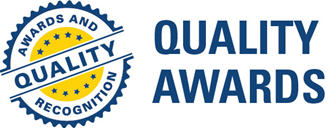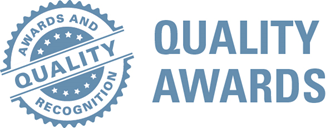
Our goal is to maximize the educational value from every conference. You should be able to leave a conference with at least 3-4 teaching points about a particular topic area or clinical condition. Expect the conferences, especially the noon reports, to be interactive. Having a room filled with several attendings, residents, and students fosters good, spirited but friendly discussion.
- Noon Report: This will be four days a week on Mondays, Tuesdays, Thursdays, and Fridays. Noon Report features a variety of lectures, diagnosing the canvas, case presentations, Journal Club, QI conferences, and Radiology conferences. This is protected education time and the resident is free from clinical duties during that time.
- Academic Half Days on Wednesdays: In an effort to provide comprehensive protected time for resident education we will hold dedicated resident education conferences on Wednesday afternoons. The resident will be free from all clinical duties at that time. These academic half days will focus on core medicine conferences and can include clinically based didactic conferences and board review sessions as well.
- Morbidity, Mortality, Intense Analysis & Improvement (MM I &I) Conference: This innovative conference occurs every 8 weeks on Wednesday afternoon protected education day. Led by Dr. Liz Paul, attending hospitalist faculty, this conference permits residents to not only present a traditional M and M case presentation but also do a deep dive and perform an intense analysis which is important for all residents. The unique aspect is also the improvement aspect of this conference: the residency and faculty together discuss possibilities and opportunities for developing an action plan(s) to try to “solve” the problem. This is followed up and the next conference. The realization that we as physicians can affect change and contribute to improving the quality of care and safety of our patients is empowering.
- Lifestyle Medicine Academic Half Day: This will occur on the third Wednesday of each rotation. The session for the Internal medicine residents only will occur from 12:30-4:30 pm. This afternoon session consists of further didactics, flipped classroom sessions with the resident as a teacher and/or faculty-led sessions, evidenced-based nutrition journal club on certain Wednesdays, and resident-focused wellness sessions. Please refer to the LM Curriculum for more information.
- Nutrition Based Lifestyle Medicine Journal Club: This occurs on Wednesdays during the Lifestyle Medicine education half-day. Salient articles in the field of Lifestyle Medicine are discussed. Residents are assigned to present articles during this journal club and discussions are led by the assigned resident and Dr. Grega and Dr. Davis during this time.
- Evidence Based Medicine Journal Club: This conference, led by Dr. Patel and Dr. Kaur occurs on the 4th Friday of each four-week block. Two clinically relevant peer-reviewed journal club articles are presented. The presenting resident will select a salient article, initially review it and then meet with Dr. Kaur to review the statistical methodology of each article. These journal club presentations are done via powerpoint format.
- Medical Education Grand Rounds: These occur on the second Thursday of each month and are network-wide education conferences on different aspects of medicine including but not limited to core medicine topics, financial literacy for residents, and other pertinent educational topics.
- Acute Care Introductory Conference Series: During the months of July, August and September, several morning conferences and many of the half day conferences are devoted to the dedicated acute care conferences. The topics in these conferences cover inpatient urgent and emergent medical problems.
- Clinical Skills Sessions: These are in the first few months of the academic year and represent a collaborative effort by the Internal Medicine, Family Medicine, Neurology, Psychiatry, and Transitional Year residency programs to have their residents participate in fundamental clinical skills sessions to ensure a basic level of clinical competency among the first year residents. Examples include clinical skills sessions reviewing the neurologic examination and musculoskeletal examination and joint injection.
- Research/Quality Improvement Meeting: This conference occurs the last Friday of each month. Because research and quality improvement are so intertwined, aspects of both are discussed at this conference. Specific themes of research methodology are discussed during this meeting as well as specific quality improvement projects and/or research projects that residents may be involved in. Principles of biostatistics are also reviewed during this conference as well.


 Quality Awards
Quality Awards
